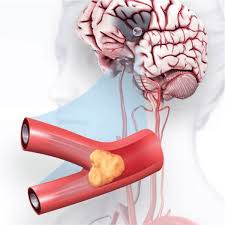The research, led by Dr. Raed A. Joundi of McMaster University and the Population Health Research Institute in Ontario, Canada, analyzed data from individuals in Ontario between 2002 and 2022. The study examined adults hospitalized for ischemic stroke, intracerebral hemorrhage, or acute myocardial infarction (AMI), comparing 175,980 stroke survivors with matched cohorts from the general population (174,817 individuals) and AMI patients (151,673 individuals).
Over an average follow-up period of 5.6 years, 18.7% of stroke survivors were diagnosed with dementia, compared to 12.5% of individuals in the general population. The incidence of dementia per 100 person-years was significantly higher among stroke survivors (3.34) compared to the reference population (1.89) and AMI patients (1.75). Stroke survivors faced a 76% higher risk of dementia than the general population and an 82% higher risk than AMI patients.
The study revealed that dementia risk peaks within the first year post-stroke, with a hazard ratio exceeding 2.5 compared to the general population. While the risk declines over time, it remains 1.5 times higher at five years and 1.3 times higher even two decades later. Recurrent strokes further triple the risk of developing dementia.
"The risk was highest early after stroke but remained elevated 20 years after, highlighting the need for developing new interventions for dementia prevention in the acute and chronic phases of stroke," the authors emphasized.
These findings underscore the importance of integrating cognitive health strategies into stroke recovery plans, including early screening for dementia and long-term follow-up care.
